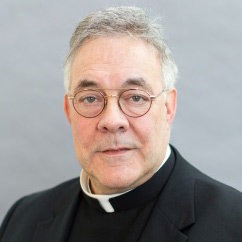Jean-Bertrand Aristide, the ex-president of Haiti who has lived lavishly in exile as a guest of the South African government for the past six years, recently announced he was ready to go back and help Haiti rebuild from its catastrophic earthquake. Allowing the former despot Aristide — a long time proponent of liberation theology — back into the country would be the worst thing we could do to Haiti right now. The American government must resist any move by Aristide to return.
In 2004, I wrote a piece for the Wall Street Journal in which I reminded readers of Aristide’s violent past:
In sermons later published in his book “In the Parish of the Poor,” [Aristide] called for forming “battalions” to perform “acts of deliverance” and for overthrowing the regime by “any means necessary” and pined for a Haitian version of the Sandinista Revolution. He did not hide his sincere devotion to Christian communism, which preferred its humanitarianism soaked in blood.
Ultimately, this former priest’s flawed understanding of the human person and economic realities added great suffering and injustice to a Haitian people who have endured so much:
Lacking a coherent view of economics or an understanding of how society functions and develops, Liberation Theology ends up with precisely what it decries most of all: centralized power exercised on behalf of the few at the expense of the many. The story has been repeated so many times in the past 100 years that one would think that even theology students would get the message that socialism is a very bad idea. But somehow, there are always those who think that the next attempt under the right person will at last bring Heaven to Earth. Thus was Mr. Aristide’s rule despotic not despite his professed adherence to the theology of liberation but precisely because of it.
The rapid response of private citizens, governments, and international humanitarian aid agencies to this great catastrophe has been heartening to see in the days following the Jan. 12 earthquake. Now the attention gradually shifts to long term recovery and development efforts. In today’s Journal, Mary O’Grady has a very good article on mistakes made in the past in Haiti under the Clinton administration. That focus is important because right now former President Bill Clinton, O’Grady writes, “has been unofficially designated by the multilateral aid community as the conduit through which anyone who wants to participate in the country’s reconstruction will have to go.”
So how will it be different this time around for Haiti? The country’s problems won’t be solved simply by pouring more money in — although that of course is part of what is needed. What is most important now is to rebuild Haiti’s institutions in a way that will foster the rule of law, open markets, and a desire to root out corruption. Even a thing as simple as building codes, something we take for granted here in the United States, are for the most part nonexistent in Haiti. How many lives would have been saved in the earthquake if building codes had been in place and enforceable?
Free the Haitian entrepreneurial spirit. Simply pouring more millions into a failed state will only enrich and empower a new generation of kleptocrats and despots. And the aid community knows this.
So do Haitian business people:
Clifford Rouzeau, co-owner of three restaurants in the Haitian capital, has been distributing free food to more than 1,000 people every day instead of reopening. He said he hoped the crisis would end Haiti’s long history of government theft. “I’m hoping. I’ve got my fingers crossed. The people here deserve better than they actually have,” he said.
“You have a government that steals everything and won’t give anything back to the country. You have a government that doesn’t feel it necessary to put police out in the street. Do something! Put canteens all over. Just do something.”
The Heritage Foundation’s Index of Economic Freedom has this to say about corruption in Haiti:
Corruption is perceived as rampant. Haiti ranks 177th out of 179 countries in Transparency International’s Corruption Perceptions Index for 2008. Customs officers often demand bribes to clear shipments. Smuggling is a major problem, and contraband accounts for a large percentage of the manufactured consumables market. International donors have pushed the government to take a few steps to enforce public accountability and transparency, but substantive institutional reforms are still needed.
Haiti got to this deplorable state in large part because of despots like Aristide. Let’s invite him to stay in South Africa. And with Hugo Chavez’s “21st Century Socialism” on the verge of collapse in Venezuela, I’m not sure how much more evidence the global aid and development community needs to understand what doesn’t work.
Read “When Theory Met Practice — Aristide’s “liberation theology” became Haiti’s problem” on the Opinion Journal Web site.

